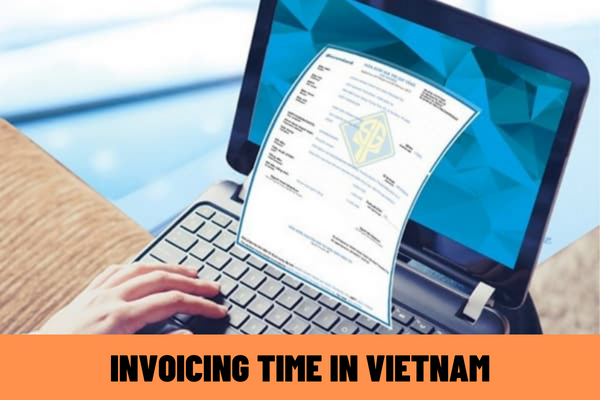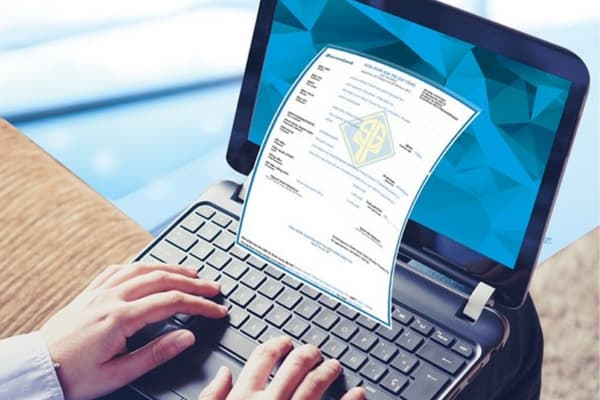Vietnam: How to issue an electronic invoice for establishments that sell foods and drinks directly to consumers through their stores, but all business operations are recorded at their head offices?
- When to issue an electronic invoice for establishments that sell foods and drinks directly to consumers through their stores, but all business operations are recorded at their head offices?
- Guidance on registration for stores using POS cash registers that are digitally connected to tax authorities in Vietnam?
- What are the rules for issuance, management and use of electronic invoices in Vietnam?
When to issue an electronic invoice for establishments that sell foods and drinks directly to consumers through their stores, but all business operations are recorded at their head offices?
Pursuant to Point g, Clause 4, Article 9 of Decree No. 123/2020/ND-CP stipulating the invoicing time in Vietnam as follows:
Invoicing time in Vietnam
…
4. Invoicing time in some specific cases:
…
g) For retailers, and foods and drinks trading establishments that sell foods and drinks directly to consumers through their stores but all business operations are recorded at their head offices (the head office directly enters into contracts for sale of goods/provision of services; each store shall issue sales invoices to clients through its POS cash register in the name of the head office), POS cash registers are connected to computers but incapable of transmitting data to tax authorities, bills are printed out and presented to clients who do not request for e-invoices and data thereof is stored on the system, at the end of a business day, the business establishment shall, based on bill data, issue e-invoices for goods or foods and drinks sold during the day, and send them to clients if requested.
Official Dispatch No. 7581/CTTPHCM-TTHT in 2022 of the General Department of Taxation of Ho Chi Minh City guides as follows:
For retailers, and foods and drinks trading establishments that sell foods and drinks directly to consumers through their stores but all business operations are recorded at their head offices (the head office directly enters into contracts for sale of goods/provision of services; each store shall issue sales invoices to clients through its POS cash register in the name of the head office), POS cash registers are connected to computers but incapable of transmitting data to tax authorities, bills are printed out and presented to clients who do not request for e-invoices and data thereof is stored on the system, invoices are issued according to the regulations specified at point g, clause 4, Article 9 of Decree No. 123/2020/ND-CP.
Thus, for establishments that sell foods and drinks directly to consumers through their stores but all business operations are recorded at their head offices, at the end of a business day, the business establishment shall, based on bill data, issue e-invoices for goods or foods and drinks sold during the day.

Vietnam: How to issue an electronic invoice for establishments that sell foods and drinks directly to consumers through their stores, but all business operations are recorded at their head offices? (Image from the Internet)
Guidance on registration for stores using POS cash registers that are digitally connected to tax authorities in Vietnam?
According to Article 8 of Circular No. 78/2021/TT-BTC on authenticated e-invoices generated from POS cash registers that are digitally connected to tax authorities in Vietnam as follows:
Authenticated e-invoices generated from POS cash registers that are digitally connected to tax authorities
…
2. When enterprises, household businesses or individual businesses that pay taxes according to tax declaration method provide goods or services directly to consumers according to such business models as shopping mall, supermarket, retailing of consumer goods, foods and drinks, restaurants, hotels, retailing of modern medicines, entertainment and relaxation services and other services), they may use either e-invoices generated from POS cash registers that are digitally connected to tax authorities or authenticated e-invoices or unauthenticated e-invoices.
3. An authenticated e-invoice generated from a POS cash register that is digitally connected to tax authorities shall have the following contents:
a) The seller’s name, address and TIN;
b) Information about the buyer, if requested (personal identification number of TIN);
c) Name of good/service, unit price, quantity and payment price. If an organization or enterprise pays taxes according to credit-invoice method, the selling price exclusive of VAT, VAT rate, total VAT payable, and total amount payable exclusive of VAT;
d) Issuance date of the invoice;
dd) Code of the tax authority.
4. Solutions for issuing tax authority’s identification codes to e-invoices generated from POS cash registers that are digitally connected to tax authorities: Tax authority’s identification codes shall be issued automatically, in the form of series of characters, to each of the business establishments specified in Clause 2 of this Article when they apply for use of authenticated e-invoices generated from POS cash registers that are digitally connected to tax authorities, and must not be coincided.
…
6. Responsibilities of sellers that use authenticated e-invoices generated from POS cash registers that are digitally connected to tax authorities:
a) Apply for use of authenticated e-invoices generated from POS cash registers that are digitally connected to tax authorities in accordance with Article 15 of Decree No. 123/2020/ND-CP;
b) Issue authenticated e-invoices generated from POS cash registers that are digitally connected to tax authorities as prescribed in Article 11 of Decree No. 123/2020/ND-CP and this Article;
c) Use codes in the form of a series of characters issued by tax authorities when issuing authenticated e-invoices generated from POS cash registers that are digitally connected to tax authorities to ensure the continuity and unity;
d) Transfer data on authenticated e-invoices generated from POS cash registers to tax authorities within the day in which such invoices are issued through data receipt, transmission and storage service providers.
Official Dispatch No. 7581/CTTPHCM-TTHT in 2022 of the General Department of Taxation of Ho Chi Minh City guides as follows:
In case the branches of the Company's branches do business and sell goods in large quantities, it is recommended that the branches of the Company register for the stores to use POS cash registers that are digitally connected to tax authorities specified in Article 8 of Circular No. 78/2021/TT-BTC.
What are the rules for issuance, management and use of electronic invoices in Vietnam?
According to Article 90 of the 2019 Law on Tax Administration of Vietnam, the rules for issuance, management and use of electronic invoices are as follows:
Rules for issuance, management and use of electronic invoices in Vietnam
1. When selling goods/services, the seller shall issue and send electronic invoices to buyers. The electronic invoices shall follow standard formats and contain sufficient information in accordance with tax laws and accounting laws, regardless of the value of each sale.
2. The sellers that use cash registers shall register to use electronic invoices generated by cash registers that are digitally connected to the tax authorities.
3. The registration, management and use of electronic invoices in sale of goods/services shall comply with regulations of law on electronic transactions, accounting and tax.
4. Electronic invoices shall be authenticated by tax authorities according to information provided on the invoices by the enterprises, business organizations, other organizations, household businesses and individual businesses. Enterprises, business organizations, other organizations, household businesses and individual businesses are held responsible for the accuracy of information on their invoices.
5. The Government shall elaborate this Article.
Thus, the rules for issuance, management and use of electronic invoices are prescribed as above.
LawNet
